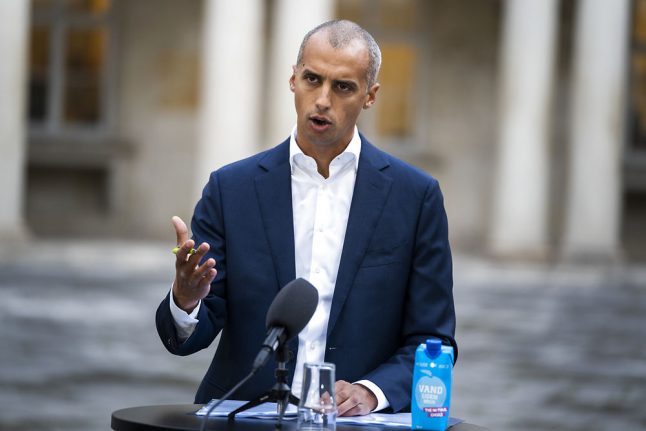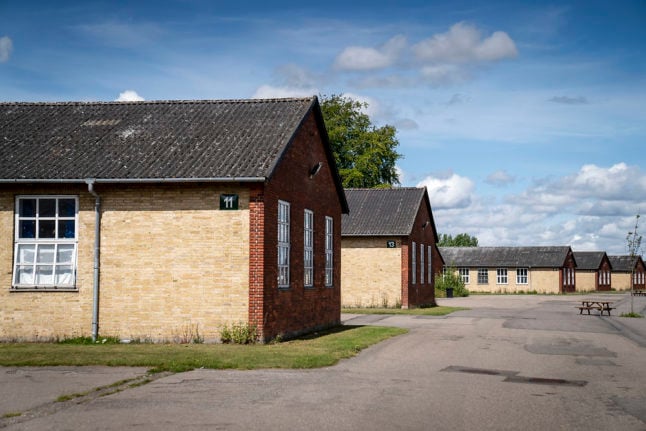People from immigrant backgrounds who are tempted by crime must make a choice about their part in society, immigration minister Mattias Tesfaye said as the Danish government outlined its plan to tackle antisocial youth behaviour.
The issue was named specifically by Prime Minister Mette Frederiksen in her speech at the opening of parliament this week.
Frederiksen has also previously accused young people with immigrant backgrounds (indvandrerunge in Danish) of being the most common perpetrators of antisocial behaviour at places such as train stations or on metropolitan trains (S-tog).
Tesfaye elaborated on the government’s position, putting in blunt terms the “choice” faced by young people within the demographic.
“That choice does not need more well-meaning integration projects. The choice takes five minutes, and it is yours,” Tesfaye said at a briefing reported by DR.
The minister said that young people should choose to find work such as supermarket checkout jobs instead of turning to petty crime.
“And don’t say Danish companies are racist. I hear that all the time. I’ve also applied for internships with a weird name and it didn’t make things easier, but it can be done,” said Tesfaye, who is the son of an Ethiopian immigrant but has a traditionally Danish first name.
A 2019 report by the Danish Center for Social Science Research (VIVE) found that children and young people from underprivileged housing areas commit crime more often than their peers, but the difference fell between 2011 and 2017.
In 2011 there were almost four times more suspicions against 10-14-year-olds in underprivileged housing areas compared to the national average. In 2017, that had fallen by 27 percent, to almost three times more. Social initiatives were cited as a possible factor in the improvement.
The study also found that parents with criminal records more often have children who commit crime.
The government presented four specific measures it said were aimed at tackling youth crime and antisocial behaviour.
These include making it easier for landlords to evict tenants convicted of crime; nightlife curfews on people with convictions for violence; assembly bans in specified areas for set periods of time; and on-the-spot confiscation of valuables from persons with unpaid debt to the state.
Minister of Justice Nick Hækkerup noted that the size of the debt and whether it is in arrears would be taken into account and that people “carrying around an SU debt and paying it off” will not be the target of the proposed law.
“I know that there are also ethnic Danes who commit serious crimes, but the statistics on young people with Middle Eastern backgrounds do not lie to us. We have a problem and we need to tackle it, and no, it’s not society’s fault,” Tesfaye said.
People from ethnic minority backgrounds in Denmark are more likely to live in underprivileged areas. However, Denmark also uses ethnic demographics in its official criteria for classing an area as a 'ghetto'.
Tesfaye also had strong words for parents of young people who commit antisocial crimes, as he sought to justify enabling families to be evicted from social housing on the basis of the criminal conviction of a single member.
“Your kids are ruining their youth by wandering around and acting out down by the kebab place or at the station. They risk a future behind bars. Where are you? Turn off the TV, draw the curtains and take some responsibility for the community you live in,” he said.
READ ALSO: Danish minister hails 'lovely numbers' as refugees leave



 Please whitelist us to continue reading.
Please whitelist us to continue reading.
Member comments